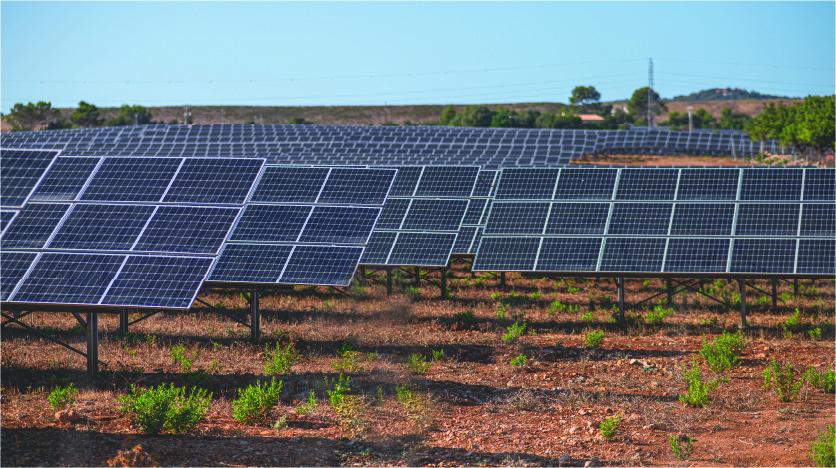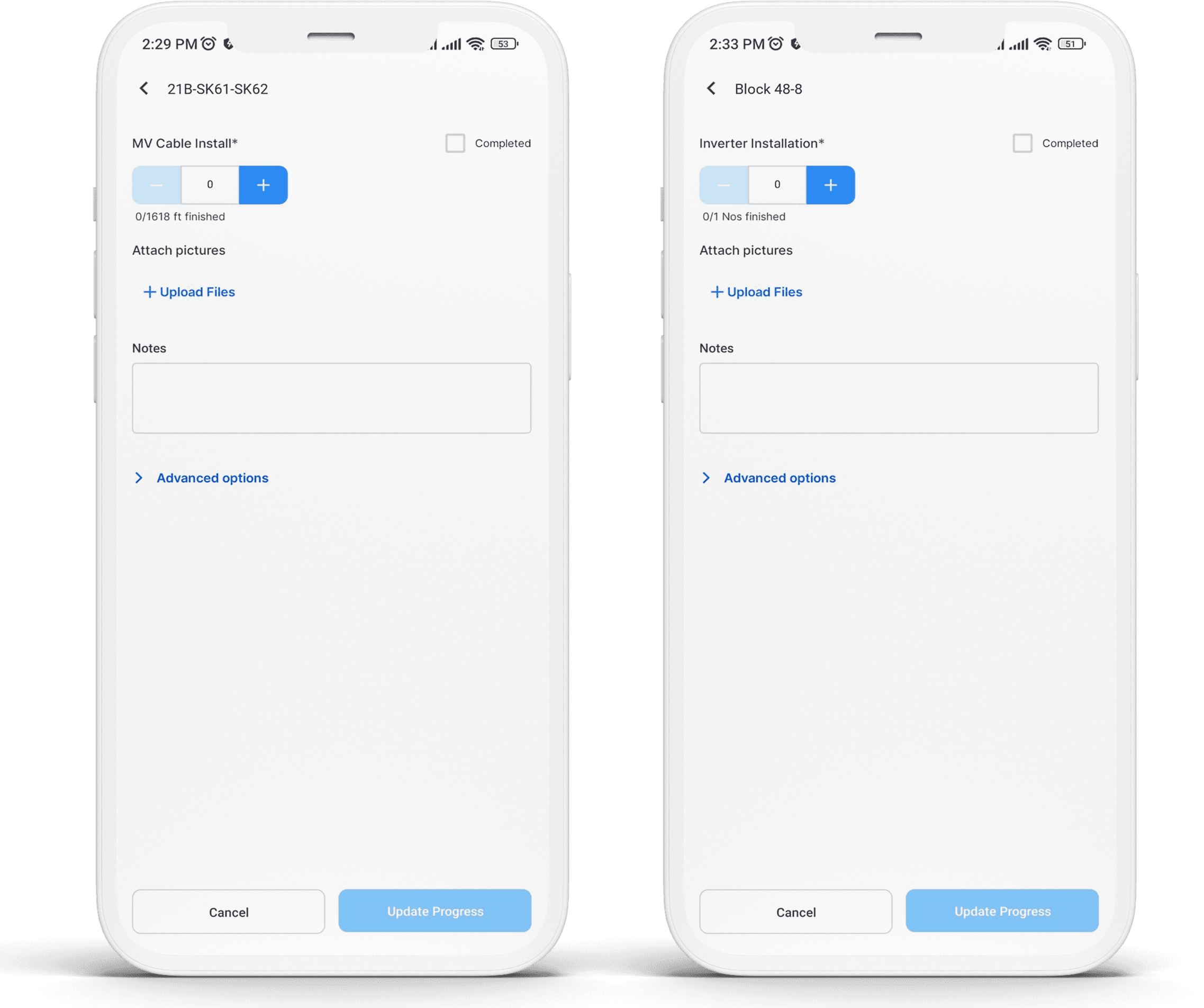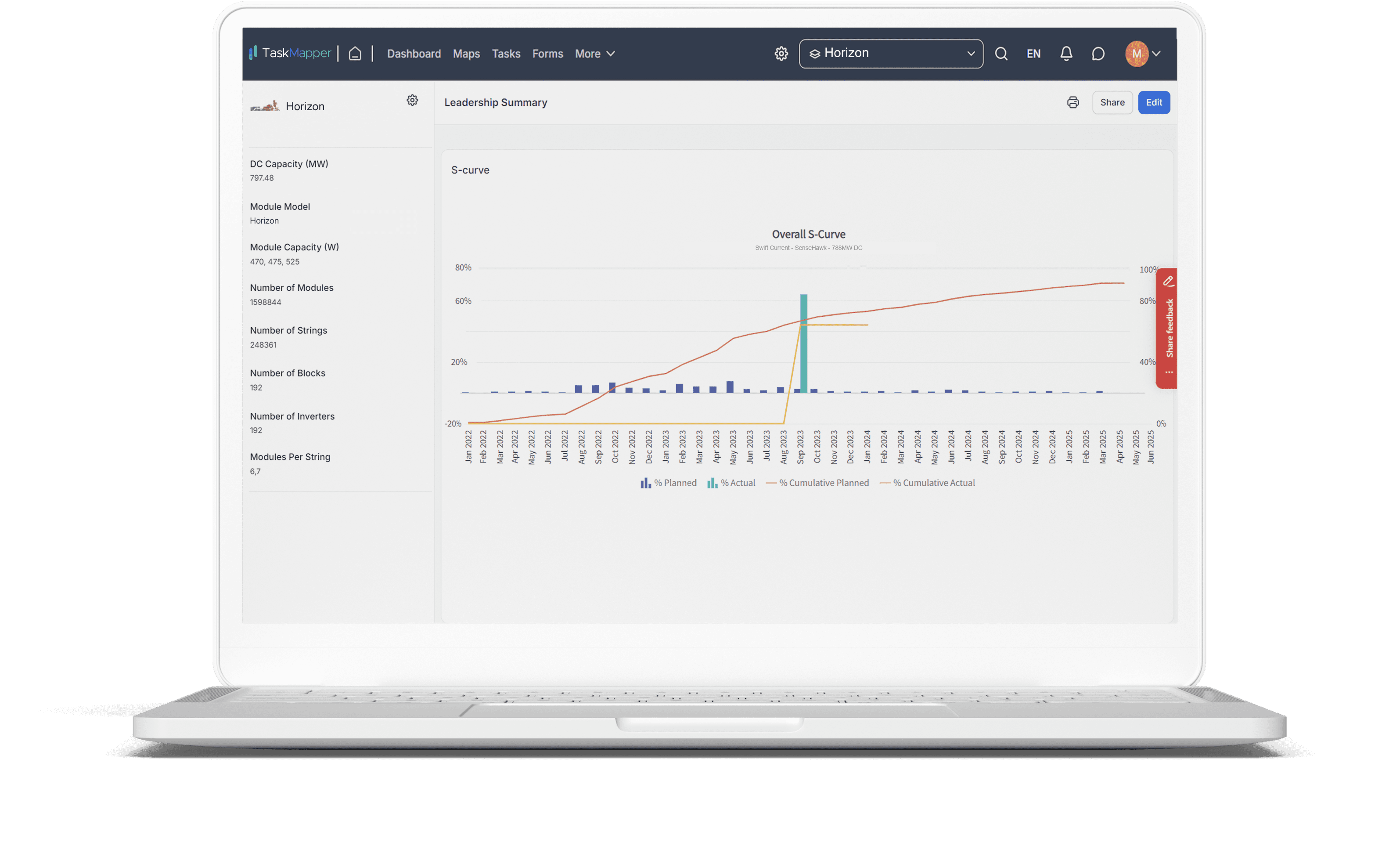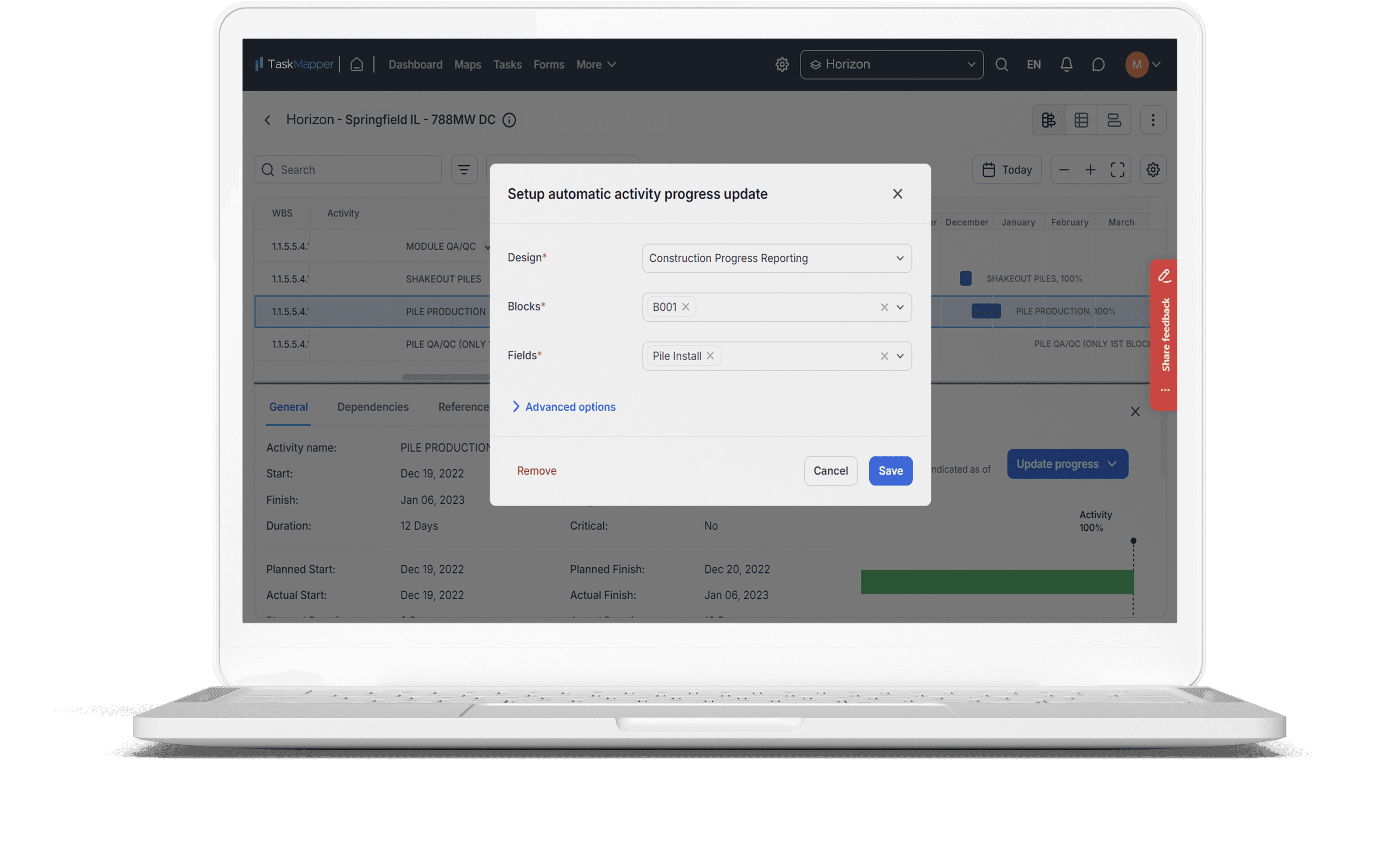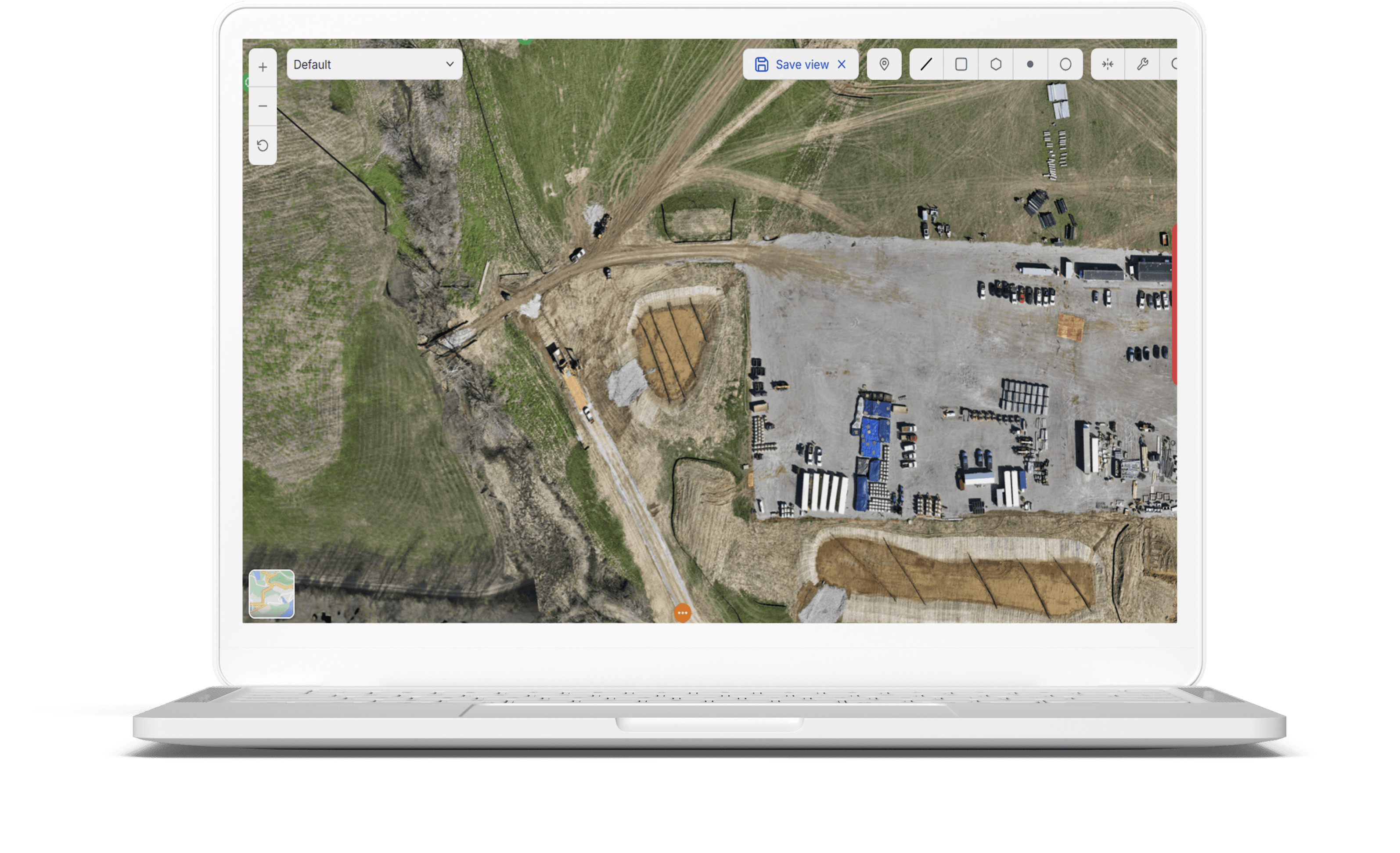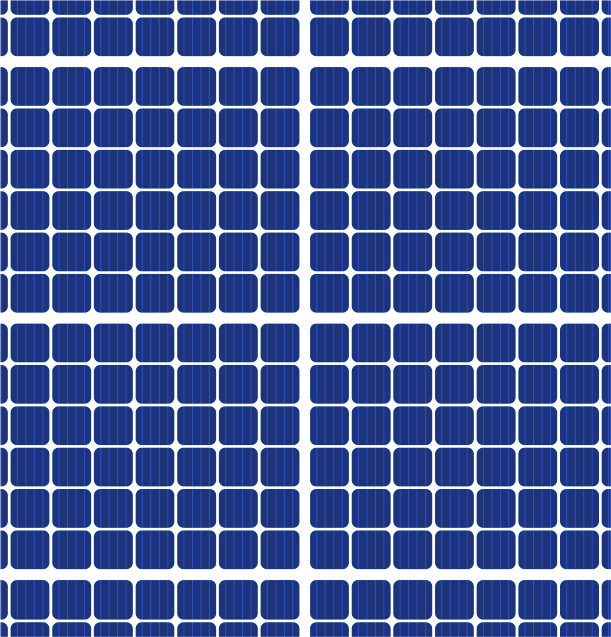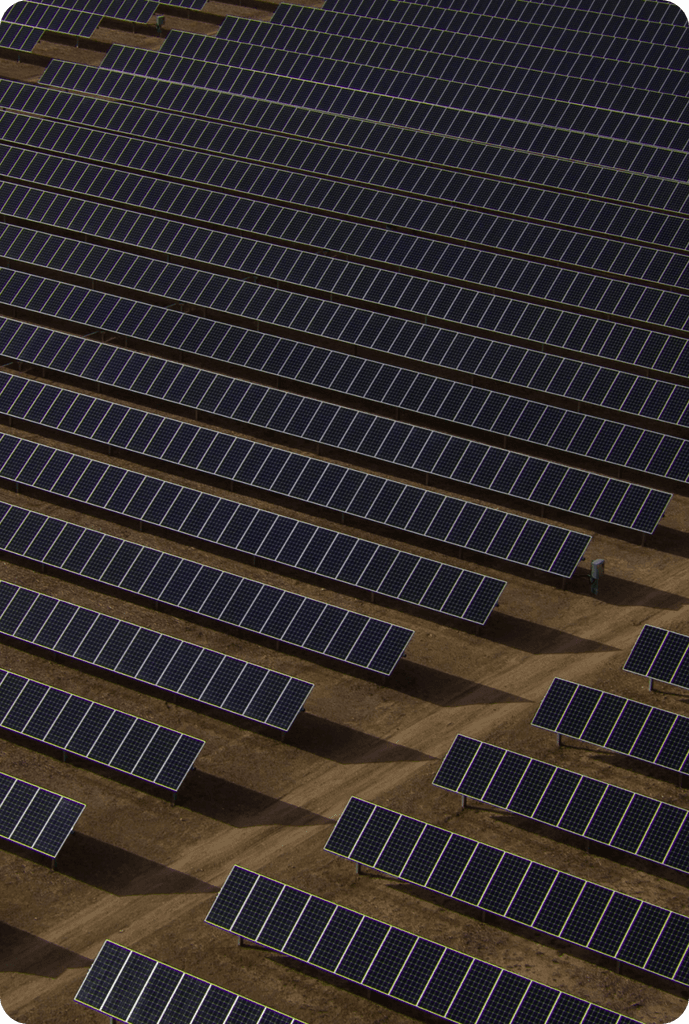
Browse other blogs
Streamlining Civil Activities in Solar Project Construction With TaskMapper
Understand key civil activities in solar energy project construction, including road development and fencing. Learn how TaskMapper simplifies monitoring, updates, and reporting, enhancing efficiency and tracking for EPC contractors.
The construction of utility-scale solar energy projects involves a variety of complex tasks, with civil engineering activities playing a crucial role. These tasks lay the groundwork for both the mechanical and electrical components of the project. This article explores the key civil activities undertaken by engineering, procurement, and construction (EPC) contractors, the challenges associated with them, and their impact on the overall project.
Essential Civil Activities in Solar Energy Project Construction
Civil engineering tasks in solar project construction are vital for establishing the infrastructure necessary for the successful operation of the plant. Here is a closer look at the main activities:
ROADS: Roads are essential for providing access to the construction site and for ongoing maintenance, once the solar plant is operational. They fall into two main categories:
Monitoring Existing Roads: It is crucial to assess the condition of public or private roads used during construction. This involves obtaining permission from local authorities and ensuring that the roads are restored to their original condition post-construction.
Construction/Enhancement of Internal Roads: Internal roads are necessary for handling construction traffic and later for operational maintenance. Construction roads are typically paved first, while internal roads required for operations can be built closer to the project's completion or before the Commercial Operation Date (COD).
FENCING: Fencing is used to secure the solar plant site, prevent unauthorized access, and protect equipment from damage. The choice of fencing depends on security requirements and budget:
Chain-Link Fence: This affordable option is easy to install and provides good visibility. However, it is less secure and may need additional features like barbed wire for enhanced protection.
Welded Wire Mesh Fence: Slightly more expensive, these fences offer greater rigidity and are suitable for areas with high winds or potential animal intrusion.
High-Security Fence: The most secure option, featuring anti-climb mesh and additional security measures like cameras and alarms. It is also the most costly.
Hybrid Fences: Combining elements of different types, such as a chain-link fence with a welded wire mesh bottom section, hybrid fences balance security, visibility, and cost.
Silt Fences: Unlike perimeter fences, silt fences are used to control rainwater runoff and erosion. They need regular monitoring throughout the construction phase to ensure effectiveness.
These civil activities in solar project construction come with their own set of challenges:
Coordination with Local Authorities: Ensuring that roads are monitored and maintained according to regulations can be time-consuming and requires strong coordination with local authorities.
Road Maintenance: Proper planning and execution are required to maintain the integrity of existing roads and to build internal roads that meet the traffic needs of the construction and operational phases.
Security Measures: Choosing the right type of fencing involves balancing cost with the required level of security, which can be a complex decision depending on site-specific risks.
Environmental Considerations: Managing runoff and erosion with silt fences requires careful monitoring to prevent environmental damage.
Properly executed civil activities ensure that the site is prepared for subsequent mechanical and electrical work. It contributes to the safety and security of the site and helps maintain the project timeline and budget.
How TaskMapper Simplifies Civil Construction Management
Streamlined Progress Tracking
TaskMapper transforms the management of civil construction activities by enabling real-time tracking and updates. Users can easily create daily progress reports for road and fence work directly from their mobile devices.
Mobile app with fence and road progress updates
Integrated Progress Databases
All updates feed into TaskMapper’s construction progress databases, which offer both map-based and tabular views. This integration allows for comprehensive monitoring of civil activities with clear visual and data-driven insights.
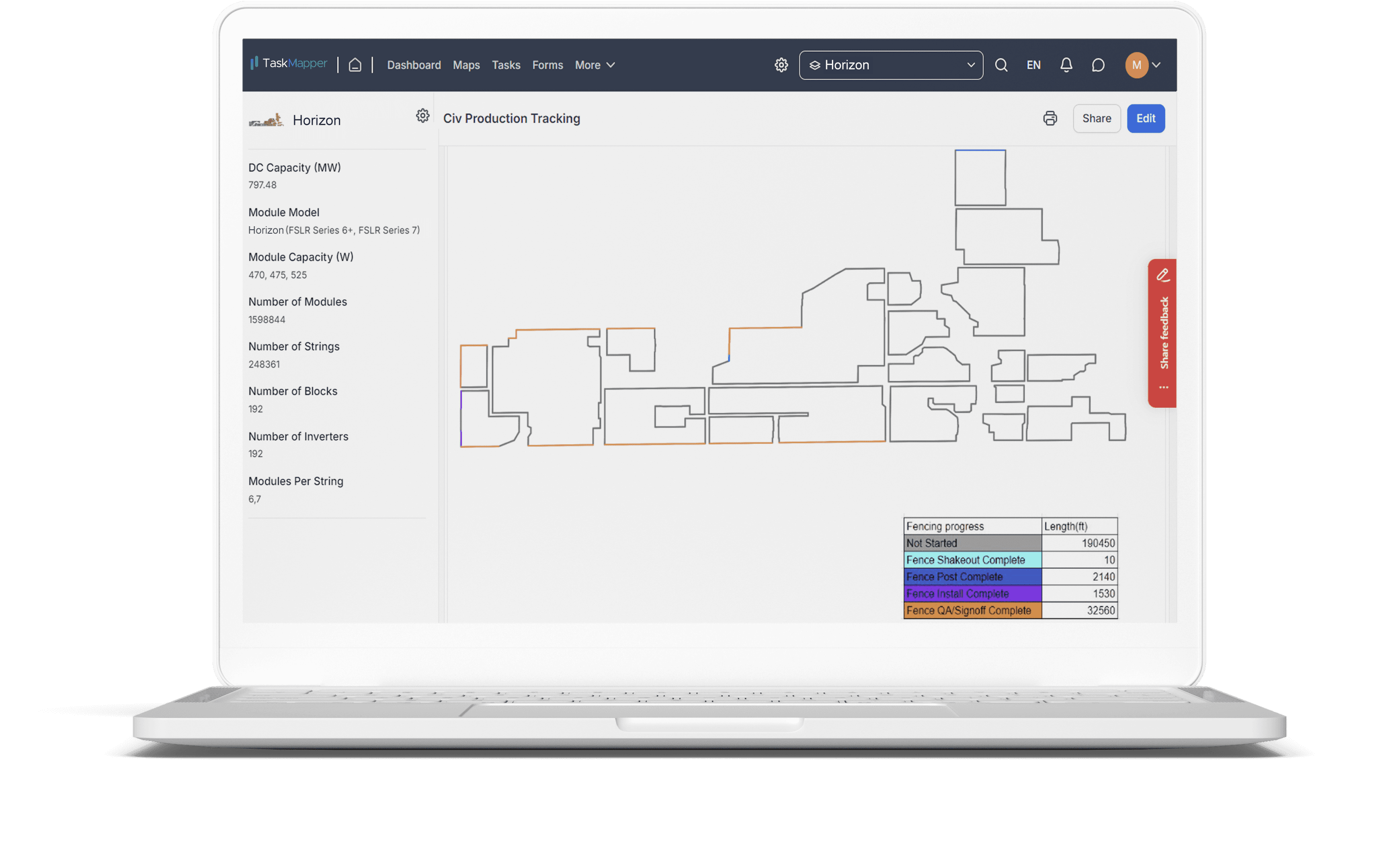
Map view showing civil progress updates
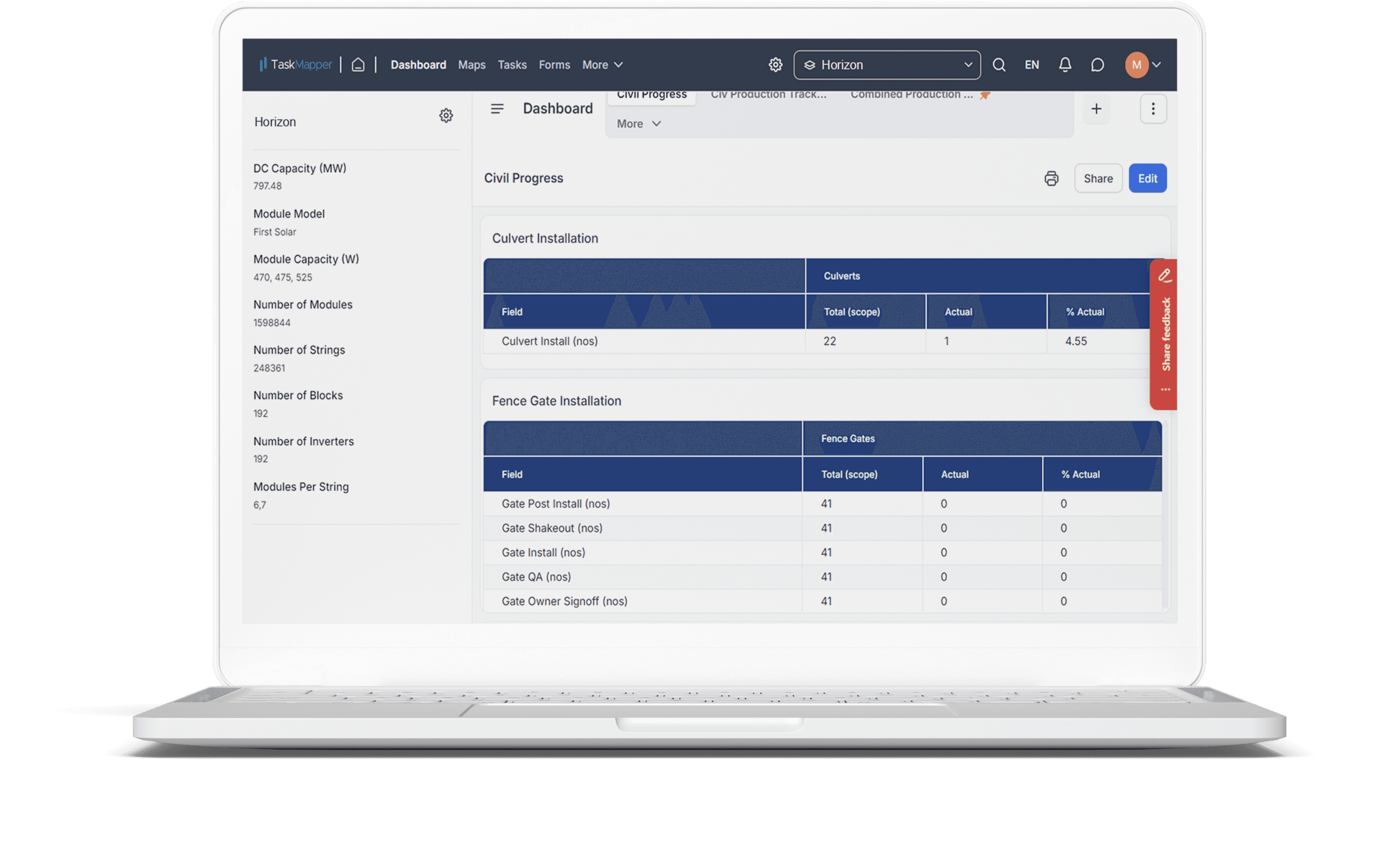
Configure dashboard for quick view of civil work progress
Dashboard with progress tables and S-curve
Project Schedule Synchronization
TaskMapper’s Project Management module allows EPC project schedules to be uploaded and synchronized. Civil activities within these schedules are automatically updated based on daily progress reports, ensuring accurate tracking and alignment with project timelines.
Sample view of civil process configuration for auto updates
Work Rate Monitoring and Adjustments
The system helps in monitoring actual work rates and calculating the necessary rates to stay on schedule. TaskMapper’s charts and graphs provide clear insights into work performance and areas needing adjustment.
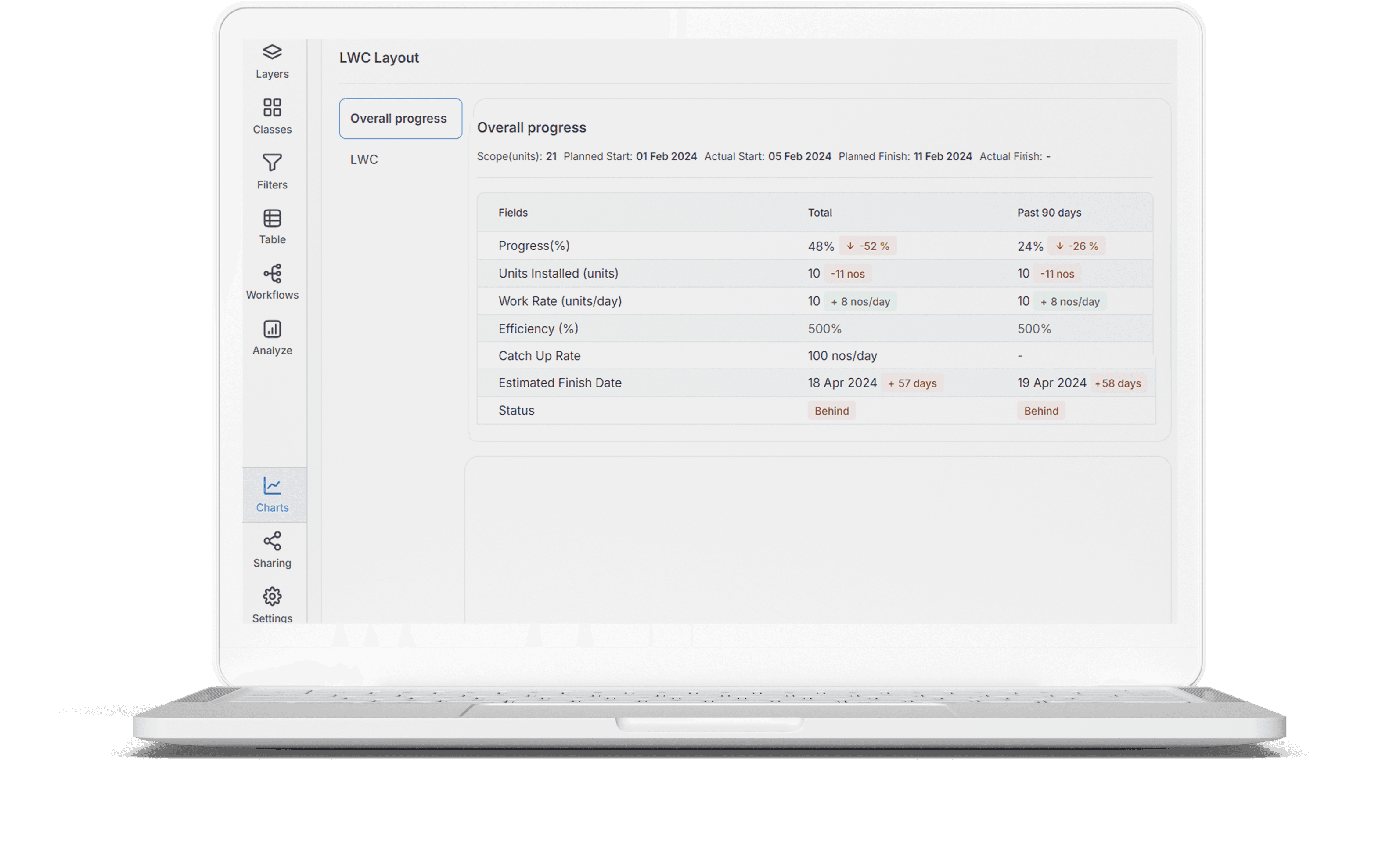
Charts showing work rate and catch-up metrics
Exportable Daily Progress Reports
Progress data can be exported to Excel for detailed Daily Progress Reports (DPR). This feature simplifies reporting and documentation, making it easier to track and review progress.
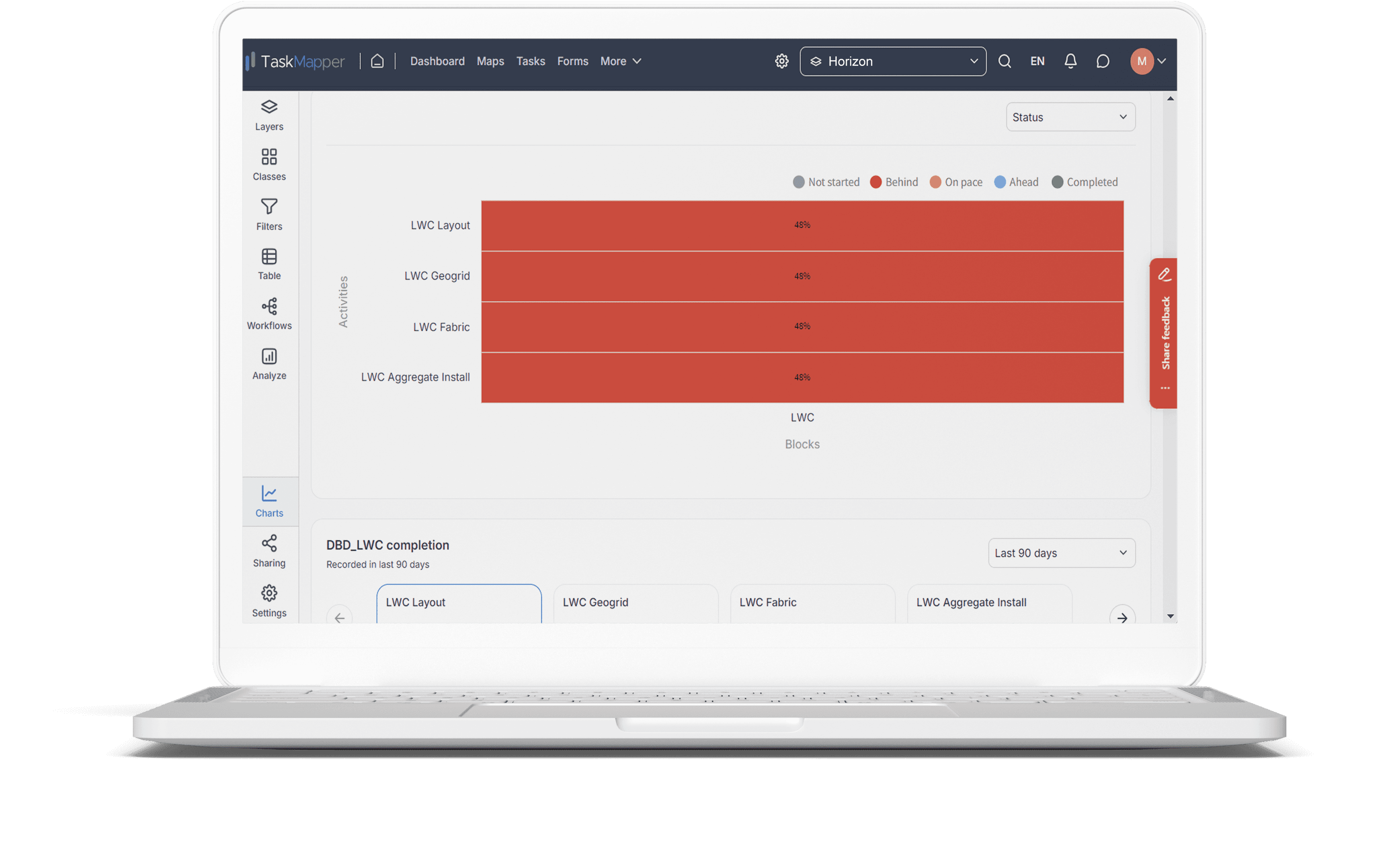
Charts to track civil activities
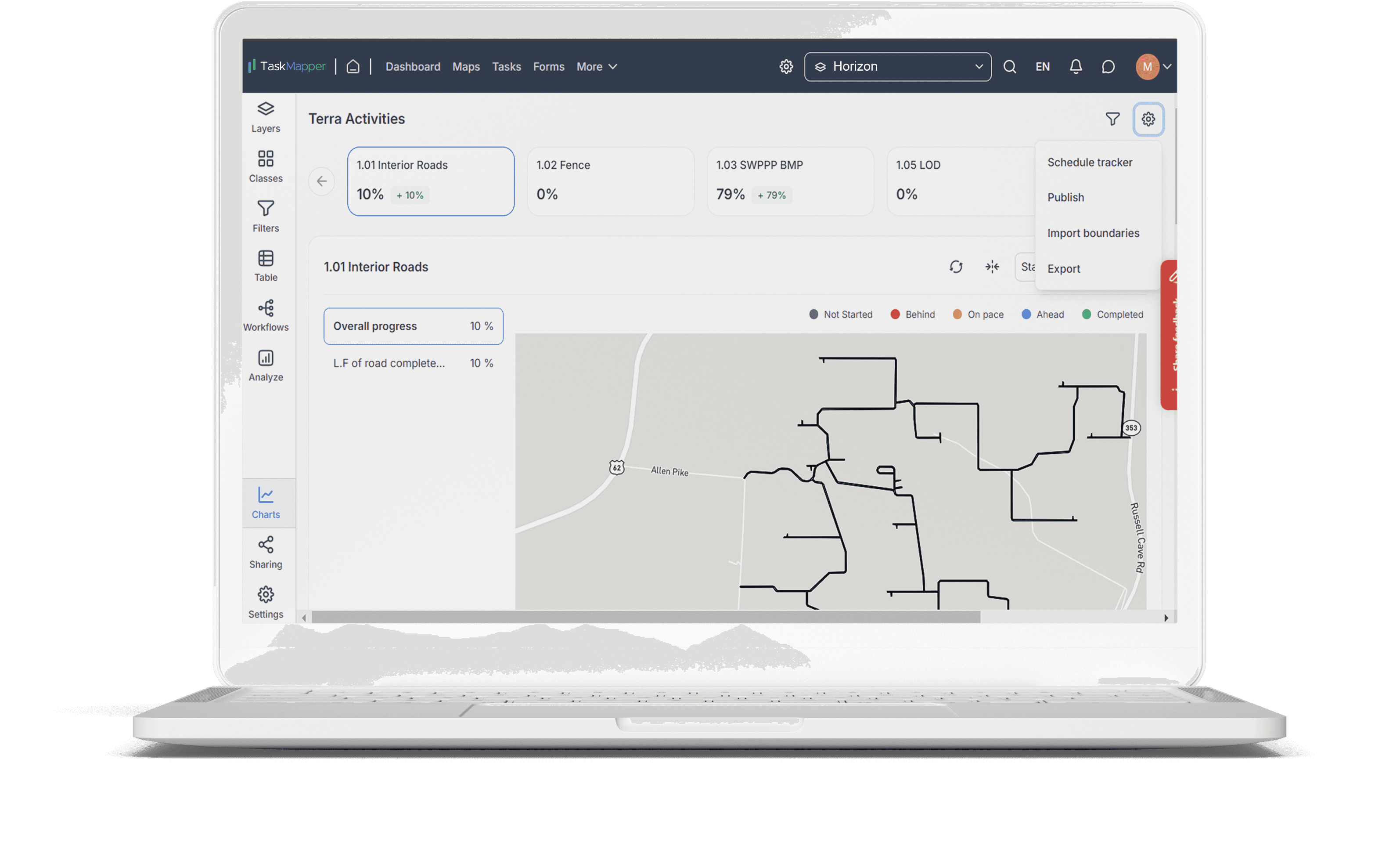
Export option and resulting DPR Excel file
Drone Mapping for Field Audits
TaskMapper utilizes drone mapping to audit manual field updates, checking conditions such as construction progress, access road status, and silt fence integrity. This ensures that all on-site activities are accurately recorded and monitored.
Sample view of civil process configuration for auto updates
By integrating these advanced features, TaskMapper provides EPC contractors with a robust toolset for managing civil construction activities efficiently and effectively.
This article is part of a series on how TaskMapper enables solar EPCs to improve project outcomes through digitization, automation, and real-time data integration. From preconstruction, civil, mechanical, and electrical activities to drone-based progress monitoring, inventory management, document control, and commissioning, TaskMapper helps boost efficiency and productivity and ensure projects are executed on time, within budget, and with guaranteed performance standards.

